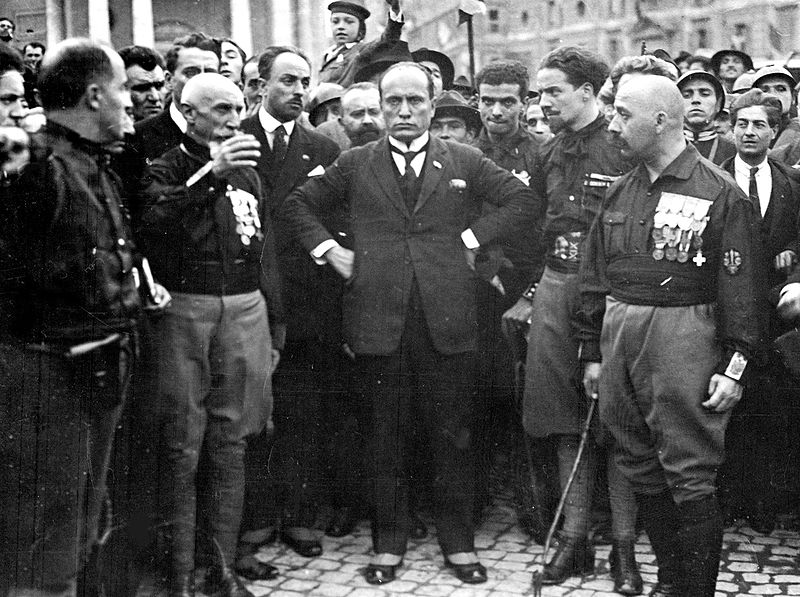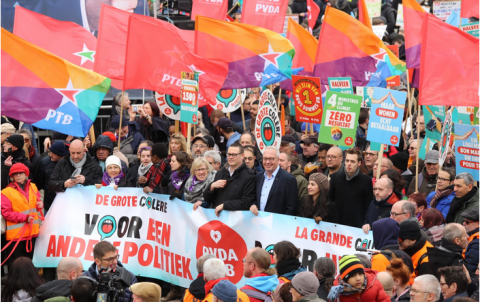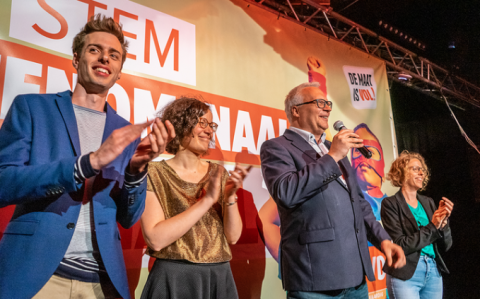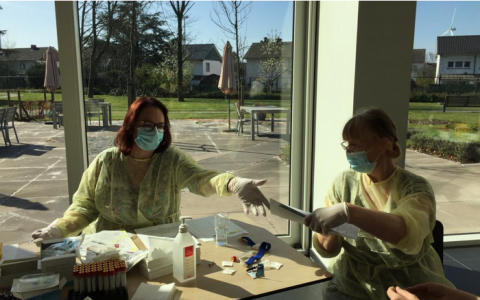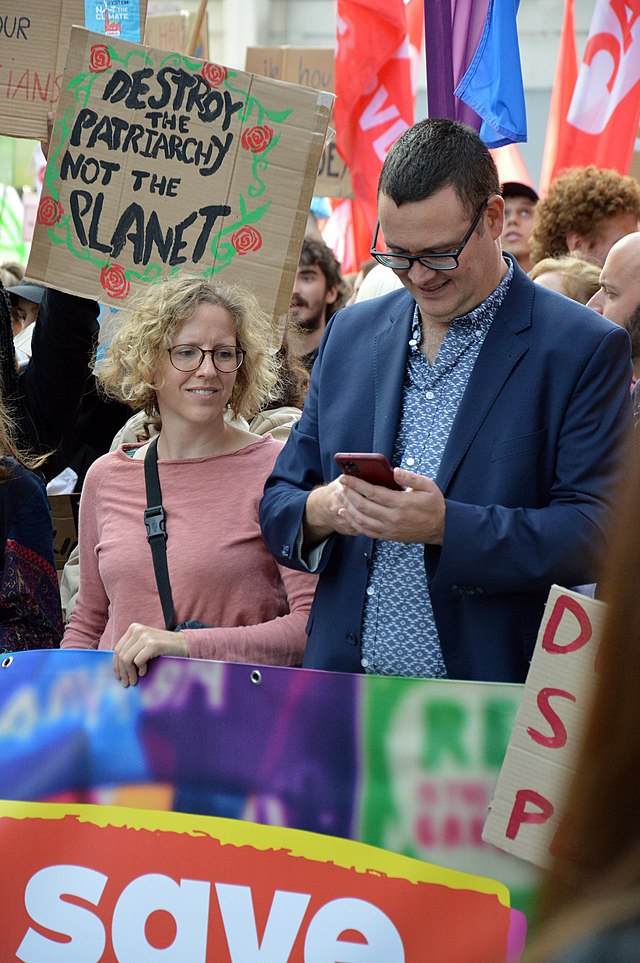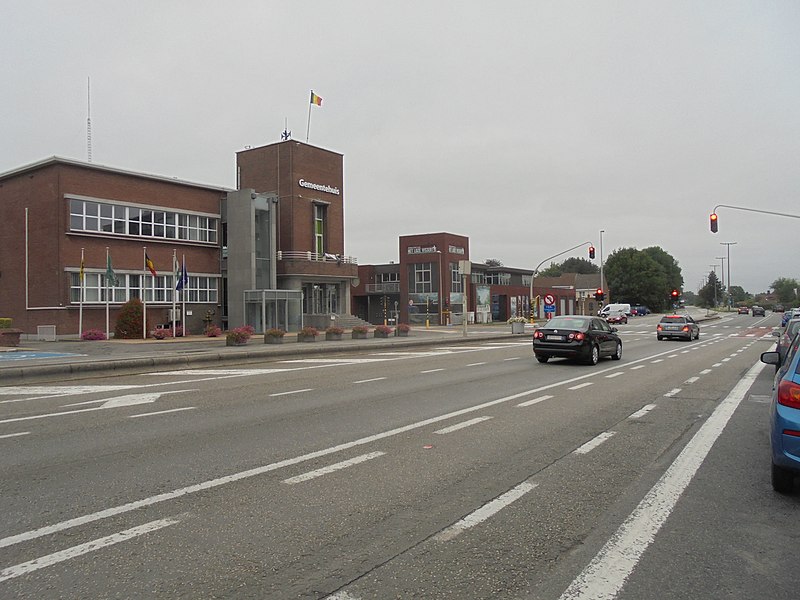Deutsche Version unten
We condemn the Russian state’s aggression and demand that it withdraw immediately all its forces from Ukraine. We believe that there can be no justification for this aggression. We support Ukraine’s independence and territorial integrity, and the Ukrainian people in their resistance to the invasion. We stand with the Ukrainian people against this aggression, and embolden our efforts against fascisms and authoritarianisms in all their manifestations.
At the same time, we oppose a military offensive or any escalation of the conflict by NATO and the EU. Diplomatic solutions, not further military escalation, should be used to stop the war.
We reject the push to war over Ukraine. In nearly every war, working class people die for the greed and power lust of our rulers. Wars are usually fought in the name of one nation or another, but we agree with the Communist Manifesto when it says that working people have no country. For this reason, we also demand that all those fleeing the Russian invasion of Ukraine who wish to come to Germany are granted asylum.
The current escalation is a result of imperialism – where economic competition leads to military conflict. The expansion of NATO into Eastern Europe and the imperial ambitions of Vladimir Putin are threatening to cost hundreds of thousands of lives. In particular, the Western suggestion that Ukraine join NATO breaks an agreement that George H.W. Bush made with Mikhail Gorbachev in 1990.
The main task of socialists is to oppose the militarism of our own ruling class. As Karl Liebknecht said, the main enemy is at home. This means that we should also demand that Germany leaves the military alliance of NATO, as a step towards the dissolution of NATO.
Calling for an end to German militarism does not mean lining up alongside Putin or Russian nationalism. Putin has a track record of imperial intervention – in Chechnya, Georgia and Crimea. He is a neoliberal tyrant and is no friend of the working class – in Russia or elsewhere. Our answer is solidarity with the anti-war movement from below in Ukraine, in Russia, in the USA, and everywhere.
While we must oppose Putin, talking about his crimes without mentioning the crimes of NATO only feeds the drive to war. From the Cuban Missile Crisis to the Gulf Wars, claims of brutality on “the other side” have been used to feed the drive to war, while similar atrocities from “our side” are systematically ignored. The ruling classes throughout the world are brutal, and must be opposed through popular uprisings, not war.
Western politicians and the media have suddenly decided that they oppose militarism and expansionism. Yet from Korea to Vietnam, from Afghanistan to Iraq, NATO has a history of invading other countries and abusing human rights. Whatever the problem is, NATO cannot be any part of the solution.
We urge the media to avoid dangerous bias and to confront this dangerous situation sincerely. We’ve witnessed the way the Western media broadcast the Afghanistan and Iraq wars at the beginning of this century as a live TV show. We are currently seeing the same process in the Russian media. RT (Russia Today) announced that the invasion was carried out to “denazify” Ukraine. This is just a mirror image of “War on Terror” during the Bush administration. Only chauvinists will be convinced by this partisanship journalism.
Although Germany now has a Red-Green-Yellow government, this does not guarantee a peaceful foreign policy. A Red-Green government willingly supported Germany’s first military interventions since the Second World War – bombing former Yugoslavia and Afghanistan. The German government has just broken a long-standing practise of not sending weapons to conflict zones. Sending German weapons to Ukraine only serves to add oil to the fire.
We make the following demands:
-
Stop the war
-
Stop the Russian aggression towards Ukraine
-
Germany should offer a safe passage and haven to deserters and other people fleeing Ukraine ohne wenn und aber
-
Germany takes in all refugees – whether Ukrainian, Afghan, Syrian, Yemeni or Somalian – and provides the same support system for all
-
NATO troops must withdraw from Eastern Europe
-
Germany should leave NATO as a step towards its dissolution
-
Demilitarize Europe
-
Better controls on all imperialist propaganda
-
Speed up the transition to renewable energies to break Germany’s dependence on Russian gas
We call on all Berlin LINKE Internationals members and supporters to take part in the many rallies for peace, a ceasefire, and disarmament.
The International Anti-War movement stands united. Hoch die Internationale Solidarität!
Stoppt den Krieg!
Erklärung von DIE LINKE Berlin Internationals zur Ukraine
Wir verurteilen die Aggression des Russischen Staates und fordern den sofortigen Rückzug aller Streitkräfte aus der Ukraine. Wir glauben, dass es keine Rechtfertigung für diese Aggression geben kann. Wir unterstützen die Unabhängigkeit und territoriale Integrität der Ukraine und das Ukrainische Volk in seinem Widerstand gegen die Invasion. Wir stehen mit dem Ukrainischen Volk gegen die Aggression und bekräftigen unsere Bemühungen gegen Faschismus und Autoritarismus in all seinen Manifestationen.
Gleichzeitig lehnen wir eine militärische Offensive oder jegliche Eskalation des Konflikts durch die NATO und die EU ab. Diplomatische Lösungen, nicht weitere militärische Eskalation, sollten den Krieg stoppen.
Wir lehnen den Vorstoß zum Krieg um die Ukraine ab. In nahezu jedem Krieg sterben Menschen der Arbeiterklasse für die Gier und Machtlust unserer Herrscher. Kriege werden üblicherweise im Namen der einen oder anderen Nation geführt, aber wir stimmen dem Kommunistischen Manifest zu, wenn es sagt, dass Arbeiter kein Vaterland haben. Aus diesem Grund fordern wir ebenso, dass allen vor der russischen Invasion in der Ukraine Fliehenden, die nach Deutschland kommen wollen, hier Asyl gewährt wird.
Die derzeitige Eskalation ist ein Resultat des Imperialismus, in dem wirtschaftlicher Wettbewerb zu militärischem Konflikt führt. Die Ausdehnung der NATO nach Osteuropa und die imperialen Ambitionen von Vladimir Putin drohen hunderttausende Leben zu kosten. Insbesondere der Vorschlag des Westens, dass die Ukraine der NATO beitritt, bricht eine Vereinbarung, die George H.W. Bush und Michail Gorbatschow 1990 trafen.
Die Hauptaufgabe eines Sozialisten ist es, den Militarismus der herrschenden Klasse abzulehnen. Wie Karl-Liebknecht sagte, der Hauptfeind steht im eigenen Land. Das bedeutet, dass wir auch fordern sollten, dass Deutschland die militärische Allianz der NATO verlässt als einen Schritt hin zur Auflösung der NATO.
Nach einem Ende des deutschen Militarismus zu rufen bedeutet nicht, sich neben Putin oder den Russischen Nationalismus zu stellen. Putin hat einen Streckenrekord der imperialen Intervention in Tschetschenien, Georgien und der Krim. Er ist ein neoliberaler Tyrann und ist kein Freund der Arbeiterklasse in Russland oder anderswo. Unsere Antwort ist Solidarität mit der Antikriegsbewegung in der Ukraine, in Russland, in den USA und überall.
Auch wenn wir uns Putin widersetzen müssen, nährt das Sprechen über seine Verbrechen ohne die Erwähnung der Verbrechen der NATO nur den Drang zum Krieg. Von der Kubakrise bis zu den Golfkriegen wurden Behauptungen zur Brutalität „der anderen Seite“ benutzt um den Drang zum Krieg zu nähren, während ähnliche Grausamkeiten „unserer Seite“ systematisch ignoriert wurden. Die herrschenden Klassen in aller Welt sind brutal und Widerstand muss durch Volksaufstände, nicht durch Krieg erfolgen.
Die westlichen Politiker und Medien haben plötzlich entschieden, dass sie Militarismus und Expansion ablehnen. Aber von Korea bis Vietnam, von Afghanistan bis Irak, hat die NATO eine Vorgeschichte der Invasion anderer Länder und des Missbrauchs von Menschenrechten. Was immer das Problem ist, die NATO kann kein Teil der Lösung sein.
Wir drängen darauf, dass die Medien gefährliche Vorurteile vermeiden und sich dieser gefährlichen Situation ehrlich stellen. Wir haben erlebt, wie die westlichen Medien über die Kriege in Afghanistan und dem Irak am Anfang dieses Jahrhunderts in live TV Sendungen Bericht erstatteten. Wir sehen derzeit den gleichen Vorgang in den russischen Medien. RT (Russia Today) kündigte an, dass die Invasion zur Entnazifizierung der Ukraine erfolgte. Das ist nur ein Spiegelbild des „War on Terror“ während der Bush-Regierung. Nur Chauvinisten werden von diesem parteiischen Journalismus überzeugt sein.
Obwohl Deutschland nun eine Rot-Grün-Gelbe Regierung hat, garantiert das keine friedliche Außenpolitik. Eine Rot-Grüne Regierung unterstützte bereitwillig Deutschlands erste Militärintervention seit dem zweiten Weltkrieg und bombardierte das ehemalige Jugoslawien und Afghanistan. Die Deutsche Regierung hat gerade mit der langjährigen Praxis der Nichtentsendung von Waffen in Konfliktzonen gebrochen. Deutsche Waffen in die Ukraine zu senden heißt nur, Öl ins Feuer zu schütten.
Wir haben folgende Forderungen:
- Stoppt den Krieg
- Stoppt die russische Aggression gegen die Ukraine
- Deutschland sollte sicheren Durchgang und Zuflucht für Deserteure und andere Flüchtlinge aus der Ukraine ohne wenn und aber bieten
- Deutschland nimmt alle Flüchtlinge auf, ob sie Ukrainer, Afghanen, Syrer, Jemeniten oder Somalier sind und stellt die gleiche Unterstützung für alle bereit
- Die NATO Truppen müssen sich aus Osteuropa zurückziehen
- Deutschland sollte die NATO als einen Schritt hin zu ihrer Auflösung verlassen
- Demilitarisierung Europas
- Bessere Kontrolle über alle imperialistische Propaganda
- Beschleunigung des Übergangs zu erneuerbaren Energien um die Abhängigkeit Deutschlands von russischem Gas zu durchbrechen
Wir rufen alle Mitglieder und Unterstützer von DIE LINKE Berlin Internationals dazu auf, an Demonstrationen für Frieden, eine Waffenruhe und Abrüstung teilzunehmen.
Die internationale Antikriegsbewegung steht vereint. Hoch die internationale Solidarität!

